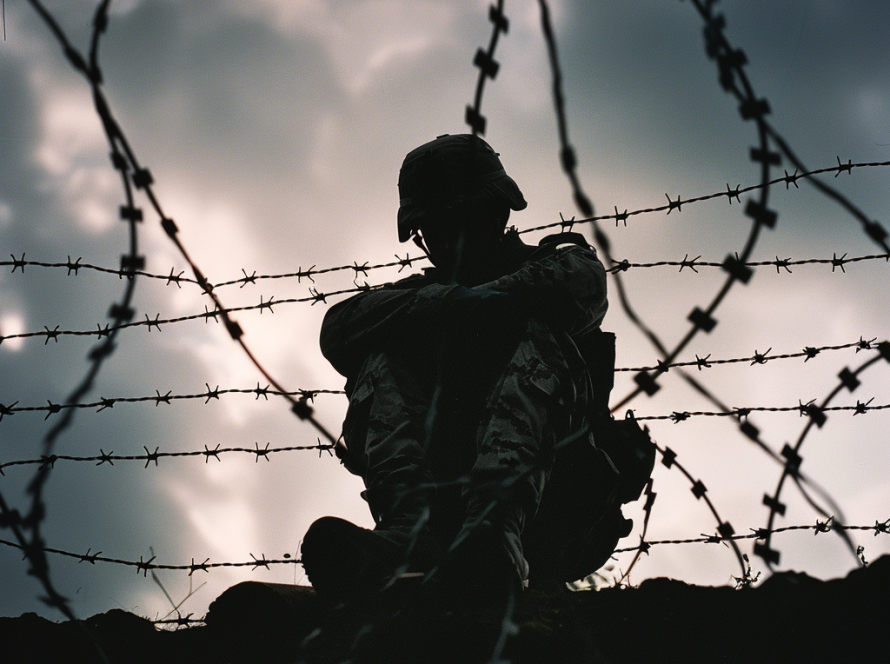In the grand tapestry of existence, we all find ourselves at the base of a metaphorical mountain. This mountain, towering and majestic, represents our life’s journey, our aspirations, and the summit of our potential. From the bottom, we can sometimes glimpse the peak, shrouded in mist and seeming impossibly distant. Yet, as we embark on our climb, we quickly realize a fundamental truth: while we all see the same summit, our paths to reach it are uniquely our own.
The Diverse Paths of Ascent
The ancient Greek philosopher Heraclitus once said, “The path up and down is one and the same.” This paradoxical statement reminds us that despite the apparent differences in our journeys, we are all engaged in the same fundamental human experience of growth and struggle.
However, it’s undeniable that these paths vary greatly in their difficulty and challenges. Some may find themselves on a gentle, winding trail with clear markers and frequent rest stops. Others might face a steep, rocky ascent with treacherous cliffs and unexpected obstacles. This disparity can often lead to feelings of unfairness or resentment, especially when we compare our arduous climb to what appears to be someone else’s effortless ascent.
The 20th-century French philosopher Albert Camus addressed this very issue in his essay “The Myth of Sisyphus.” He argued that the struggle itself is enough to fill a person’s heart, that the journey, regardless of its difficulty, gives meaning to our lives. In essence, it’s not the ease of the path that defines us, but how we choose to walk it.
The Wolves Within: Choosing Our Guide
As we navigate our unique paths, we’re not alone in our journey. Within each of us, there’s an internal struggle, beautifully captured in the Native American tale of the two wolves. This story tells of an old Cherokee teaching his grandson about life:
“A fight is going on inside me,” he said to the boy. “It is a terrible fight and it is between two wolves. One is evil – he is anger, envy, sorrow, regret, greed, arrogance, self-pity, guilt, resentment, inferiority, lies, false pride, superiority, and ego.”
He continued, “The other is good – he is joy, peace, love, hope, serenity, humility, kindness, benevolence, empathy, generosity, truth, compassion, and faith. The same fight is going on inside you – and inside every other person, too.”
The grandson thought about it for a minute and then asked his grandfather, “Which wolf will win?”
The old Cherokee simply replied, “The one you feed.”
This parable aligns closely with Stoic philosophy, particularly the teachings of Epictetus, who emphasized the importance of focusing on what is within our control. We may not be able to change the steepness of our path or the obstacles we encounter, but we can choose which “wolf” we feed – the one that propels us forward with resilience and determination, or the one that holds us back with bitterness and resentment.
The Military Transition: A Unique Ascent
For many veterans transitioning to civilian life, the journey up the mountain takes on a particularly challenging form. Having spent years on a clearly defined path with a strong sense of purpose and camaraderie, the shift to civilian life can feel like suddenly being dropped onto an unfamiliar and seemingly insurmountable slope.
The Roman philosopher Seneca, in his letters, wrote, “It is not because things are difficult that we do not dare; it is because we do not dare that things are difficult.” This sentiment encapsulates the mindset needed for veterans facing the daunting task of reinventing themselves in the civilian world. The skills, discipline, and resilience developed during military service become the equipment for this new climb.
Just as each soldier’s experience in the military is unique, so too is each veteran’s transition. Some may find that their military skills translate easily to civilian careers, providing them with a well-trodden path. Others might need to forge entirely new trails, learning new skills and adapting to unfamiliar environments. The key is to recognize that regardless of the path’s difficulty, the strength to climb comes from within.
The Summit: A Shifting Perspective
As we ascend our personal mountains, an interesting phenomenon occurs: our perspective of the summit changes. What once seemed like a clear, fixed point becomes a shifting, evolving target. This shifting summit reflects the dynamic nature of our goals and aspirations.
The contemporary philosopher Alain de Botton touches on this idea in his work “The Consolations of Philosophy.” He suggests that our goals and definitions of success are often shaped by societal expectations rather than our true desires. As we climb, we may realize that the summit we’ve been aiming for isn’t actually where we want to go.
This realization is particularly poignant for transitioning veterans. The goals and measures of success that defined military life may not align with personal aspirations in the civilian world. The climb becomes not just about reaching a predefined summit, but about discovering which peak truly calls to us.
Embracing the Climb
In the end, the philosophy of the mountain teaches us several valuable lessons:
- We all start at the bottom, but our paths are uniquely our own.
- The difficulty of the path doesn’t diminish the value of the journey.
- Our internal struggles (our “wolves”) play a crucial role in our ascent.
- The perspective of the summit changes as we climb.
- The climb itself, with all its challenges, is what gives our journey meaning.
For veterans transitioning to civilian life, for entrepreneurs starting new ventures (like our journey with Warrior Dog Spirit Distillery), and for anyone facing life’s challenges, remember: the mountain is there to be climbed, not conquered. Each step, each struggle, each moment of doubt or triumph, is part of the rich tapestry of your unique journey.
As we raise a glass of Warrior Dog Spirit whiskey, let’s toast to the climb. May we have the wisdom to choose our paths thoughtfully, the strength to feed the right wolf, and the courage to keep ascending, no matter how steep the trail becomes. After all, as the philosopher Friedrich Nietzsche reminds us, “He who climbs upon the highest mountains laughs at all tragedies, real or imaginary.”
To the climb, to the climbers, and to the indomitable spirit that drives us ever upward.
Cheers,
A.E. Wolf Founder, Warrior Dog Spirit Distillery






